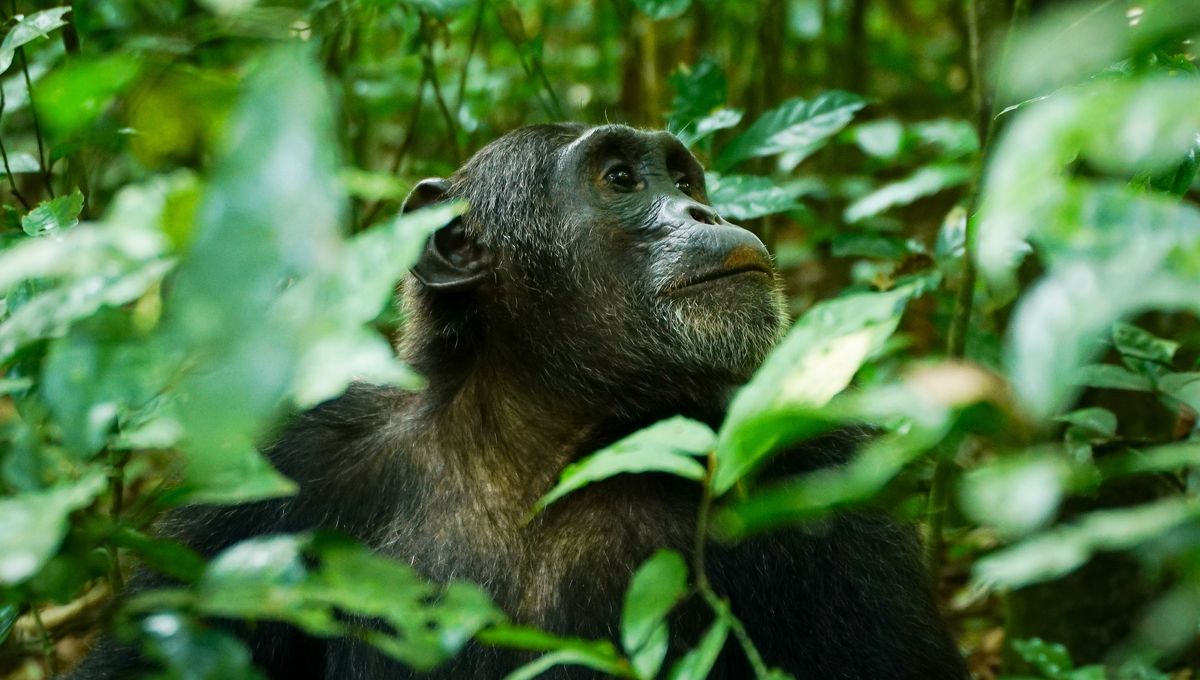
Although chimpanzees and humans share a surprising 98.8 percent of their DNA, our differences are vast – or at least we like to think. Take a look at chimp behavior and you’ll quickly realize that we’re not so different from our primate cousins (for better or for worse).
Chimps are warmongers
Humans aren’t the only animals to wage war on their own species. Between 1974 and 1978, a brutal war between two factions of chimps was documented in Tanzania’s Gombe National Park by the famous primatologist Jane Goodall.
Following the death of the long-term alpha male, Mike, Goodall noticed the community splintering into two factions: the Kasakela and the Kahama. The war was marked by a series of brutal and coordinated attacks by the Kasakela group, resulting in the systematic killing of all male members and some females of the Kahama group. The Kahama were effectively wiped out, allowing the Kasakela to expand into their territory.
It came to be known as the Gombe Chimpanzee War – and it left a profound impact on Goodall.
“Often when I woke in the night, horrific pictures sprang unbidden to my mind – Satan [one of the apes], cupping his hand below Sniff’s chin to drink the blood that welled from a great wound on his face… Jomeo tearing a strip of skin from Dé’s thigh; Figan, charging and hitting, again and again, the stricken, quivering body of Goliath, one of his childhood heroes,” she wrote in her memoir.
It would be naive to see this as mindless violence. In 2023, scientists documented chimps in Côte d’Ivoire spying on rival gangs, carefully moving to higher ground to get a better view and gather information. This, the researchers claim, is essentially an age-old tactic of human warfare.
While some researchers have accused certain primatologists of anthropomorphism, others have suggested that war-like behavior among chimps might provide insights into the evolutionary origins of organized violence in humans.
Chimps love to hunt animals and eat meat
Chimps typically eat a diet of fruits, roots, nuts, leaves, plants, flowers, and bugs, but meat does make up a small part of their diet in the wild. To get their hands on this protein-rich delicacy, smaller mammals like monkeys are typically targeted.
Once again, Goodall was one of the first researchers to scientifically document chimps indulging in carnivorous behavior and it’s since become relatively common knowledge.
A particularly strange behavior was observed in Gombe National Park where researchers saw chimps hunt down and eat dozens of baby red colobus monkeys. While passing around and sharing the catches, the chimps were seen biting open the monkey skulls and tucking into their brains. On a few occasions, the chimps even used sticks and leaves to mop up the last bits of brain matter.
In another instance, researchers even observed chimps using spears to hunt sleeping bush babies in Senegal.
Scientists have pondered whether chimp hunting behavior might shed light onto the early evolution of humans’, as well as our taste for meat.
Chimps are basically little scientists
The world of chimps isn’t all blood, guts, and violence. A huge body of evidence also shows that chimpanzees are capable of incredible displays of cognitive power and emotional intelligence.
For one, chimpanzees are known to actively seek out medicinal plants when they are sick or wounded. A study in 2024 noted how injured and ill chimps in Uganda’s Budongo Central Forest Reserve will eat plants that hold anti-inflammatory properties or naturally contain highly potent inhibitors of pathogens such as E. coli.
Likewise, chimps have been seen applying squished bugs onto their wounds. While the medicinal benefits of crushed insects aren’t known, insects have historically been used for therapeutic purposes by humans as far back as 1400 BCE and continue to be used in certain parts of the globe to this day.
Who knows, perhaps these chimps are onto something that modern medicine has yet to grasp…
Source Link: 3 Facts About Chimps That Will Change The Way You See Humans